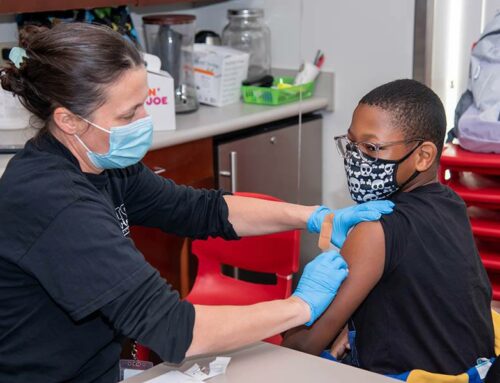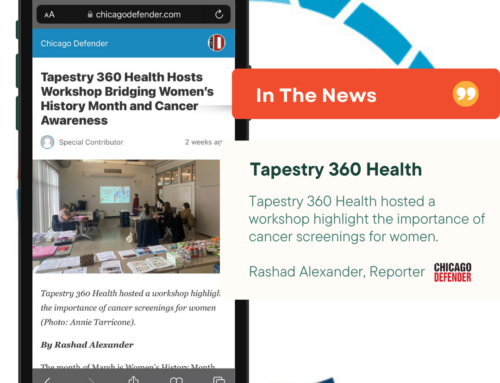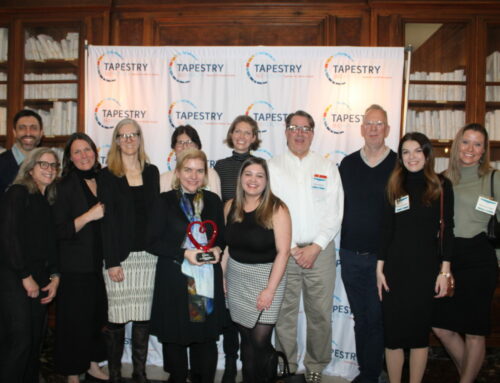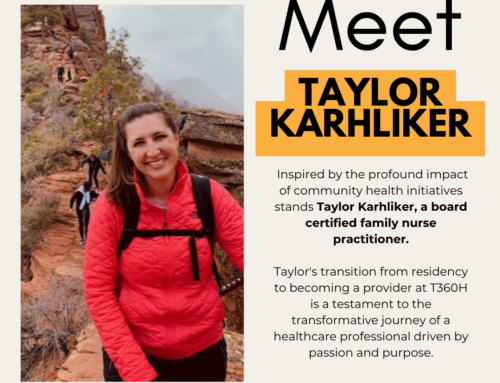News
Robert Wood Johnson Foundation funds research of innovative care team model at Tapestry Albany Park
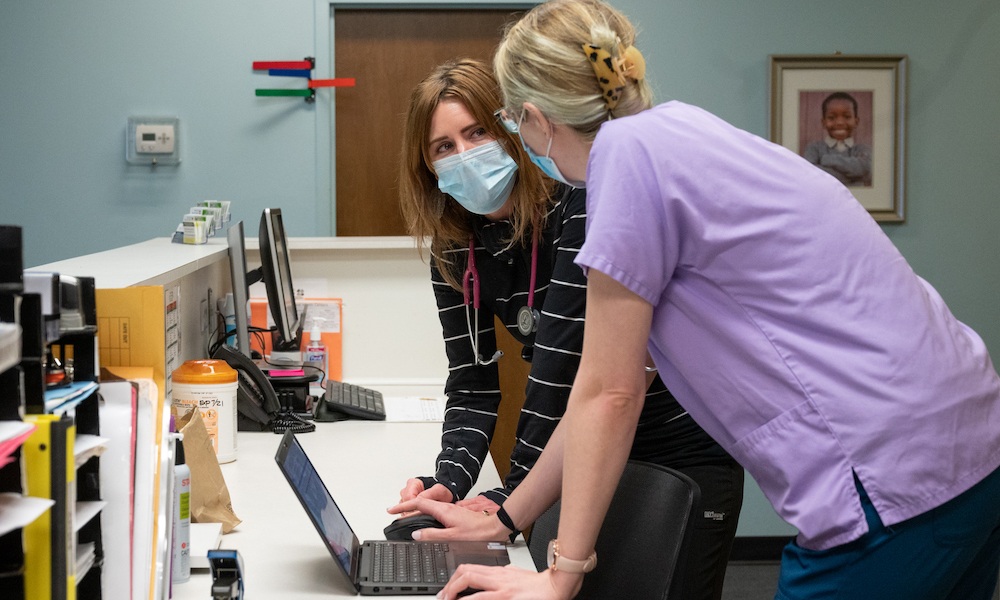
In December, Tapestry 360 Health and University of Illinois School of Public Health received a $300,000 grant from the Robert Wood Johnson Foundation to collaboratively study the impact and effectiveness of the relationship-based care model initiated in 2019 at Tapestry Albany Park.
There’s a growing consensus that we can improve healthcare by shifting roles and relationships among providers, other staff and even patients. That’s especially important in caring for those in communities where lack of income and other issues affect physical health.
In 2019, we reorganized team roles at Tapestry Albany Park to explore better ways to deliver care. We created a care team coordinator position as part of that process.
“In our emerging new model, clinicians focus on the activities where they add the most value, and the care team coordinator ensures patient needs are tended to holistically,” says Jeff Panzer, MD, Tapestry 360 Health’ Vice President of Care Transformation, who is helping to lead the new research.
The grant comes from a Robert Wood Johnson Foundation initiative to support research to advance models of care for Medicaid-eligible populations. It’s part of their commitment to building a “Culture of Health” that provides everyone in America a fair and just opportunity for health and well-being. Eight other institutions including Sinai Health System and National Opinion Research Center in Chicago, received grants.
Panzer and Emily Stiehl, PhD, Clinical Assistant Professor of Health Policy & Administration at U of I, will lead the project, which will include patient surveys, qualitative research on interactions among Tapestry 360 Health care team members, and healthcare quality data.
In December, Tapestry 360 Health and University of Illinois School of Public Health received a $300,000 grant from the Robert Wood Johnson Foundation to collaboratively study the impact and effectiveness of the relationship-based care model initiated in 2019 at Tapestry Albany Park.
There’s a growing consensus that we can improve healthcare by shifting roles and relationships among providers, other staff and even patients. That’s especially important in caring for those in communities where lack of income and other issues affect physical health.
In 2019, we reorganized team roles at Tapestry Albany Park to explore better ways to deliver care. We created a care team coordinator position as part of that process.
“In our emerging new model, clinicians focus on the activities where they add the most value, and the care team coordinator ensures patient needs are tended to holistically,” says Jeff Panzer, MD, Tapestry 360 Health’ Vice President of Care Transformation, who is helping to lead the new research.
The grant comes from a Robert Wood Johnson Foundation initiative to support research to advance models of care for Medicaid-eligible populations. It’s part of their commitment to building a “Culture of Health” that provides everyone in America a fair and just opportunity for health and well-being. Eight other institutions including Sinai Health System and National Opinion Research Center in Chicago, received grants.
Panzer and Emily Stiehl, PhD, Clinical Assistant Professor of Health Policy & Administration at U of I, will lead the project, which will include patient surveys, qualitative research on interactions among Tapestry 360 Health care team members, and healthcare quality data.


